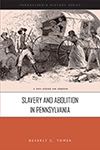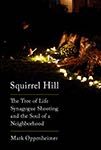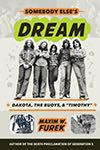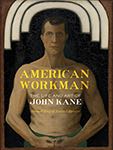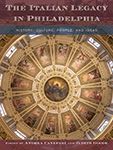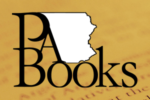In her concise history Slavery and Abolition in Pennsylvania, Beverly Tomek corrects the long-held notion that slavery in the North was “not so bad” as, or somehow “more humane” than, in the South due to the presence of abolitionists. While the Quaker presence focused on moral and practical opposition to bondage, slavery was ubiquitous. Nevertheless, […]
PA Books: “Squirrel Hill” with Mark Oppenheimer
Squirrel Hill, Pittsburgh, is one of the oldest Jewish neighborhoods in the country, known for its tight-knit community and the profusion of multigenerational families. On October 27, 2018, a gunman killed eleven Jews who were worshipping at the Tree of Life synagogue in Squirrel Hill–the most deadly anti-Semitic attack in American history. Many neighborhoods would […]
PA Books: “Somebody Else’s Dream” with Maxim Furek
The year 2021 marks the 50th anniversary of the disturbing song “Timothy.” Banned by radio stations and called “the worst song ever recorded,” its lyrics about cannibalism in a Pennsylvania coal mine eerily parallel the real-life Sheppton disaster. Written by playwright Rupert Holmes, the Billboard hit launched the career of The Buoys. They went on […]
PA Books: “An Early History of the Wyoming Valley” with Kathleen Earle
When Connecticut Yankees began to settle the Wyoming Valley in the 1760s, both the local Pennsylvanians and the powerful native Haudenosaunee (Iroquois) strenuously objected. The Connecticut Colony and William Penn had been granted the same land by King Charles II of England, resulting in the instigation of the Yankee-Pennamite Wars. In 1788, during ongoing conflict, […]
PA Books: “Abolition & the Underground Railroad in Chester County, PA” with Mark Lanyon
Chester County was home to a diverse patchwork of religious communities, antislavery activists and free Black populations, all working to end the blight of slavery during the Civil War era. Kennett Square was known as the “hotbed of abolitionism,” with more Underground Railroad stations than anywhere else in the nation. Reverend John Miller Dickey and […]
PA Books: “American Workman” with Maxwell King & Louise Lippincott
“American Workman” presents a comprehensive, novel reassessment of the life and work of one of America’s most influential self-taught artists, John Kane. With a full account of Kane’s life as a working man, including his time as a steelworker, coal miner, street paver, and commercial painter in and around Pittsburgh in the early twentieth century, […]
PA Books: “Disastrous Floods and the Demise of Steel in Johnstown” with Pat Farabaugh
Johnstown is synonymous with floodwaters and steel. When the city was decimated by a flood of biblical proportions in 1889, it was considered one of the worst natural disasters in American history and gained global attention. Sadly, that deluge was only the first of three major floods to claim lives and wreak havoc in the […]
PA Books: “Physician Soldier” with Michael Gabriel
Frederick R. Gabriel graduated from medical school in 1940, entered the US Army, and was assigned to the newly-created 39th Station Hospital. His letters from the Pacific theater—especially from Guadalcanal, Angaur, and Saipan—capture the everyday life of a soldier physician. His son, Michael P. Gabriel, a professional historian, has faithfully preserved, edited, and annotated that […]
PA Books: “The Italian Legacy in Philadelphia” with Judith Goode
Italian arts and culture have been a significant influence on Philadelphia dating back to Thomas Jefferson and colonial times. Throughout the ensuing decades, Italian art and architecture styles flourished, and wealthy Philadelphians traveled to Italy and brought back objects to display in emerging institutions of art and culture. New immigration formed neighborhoods—such as South Philly, […]
PA Books: “The Dogs of War in Our Midst” with James McClure & Scott Mingus
Authors Jim McClure and Scott Mingus team up again to present more than two dozen perspectives and articles on the Civil War history of York County, Pennsylvania. That area was a key source of troops and supplies for the United States Army’s war efforts, as well as a transportation hub. During the Gettysburg Campaign, one […]
- « Previous Page
- 1
- …
- 6
- 7
- 8
- 9
- 10
- …
- 27
- Next Page »
